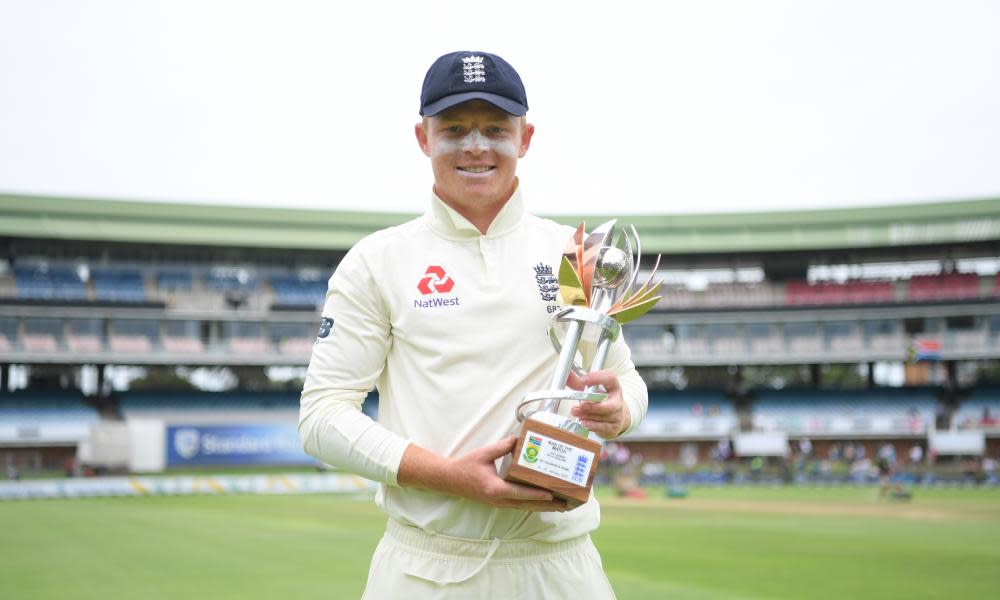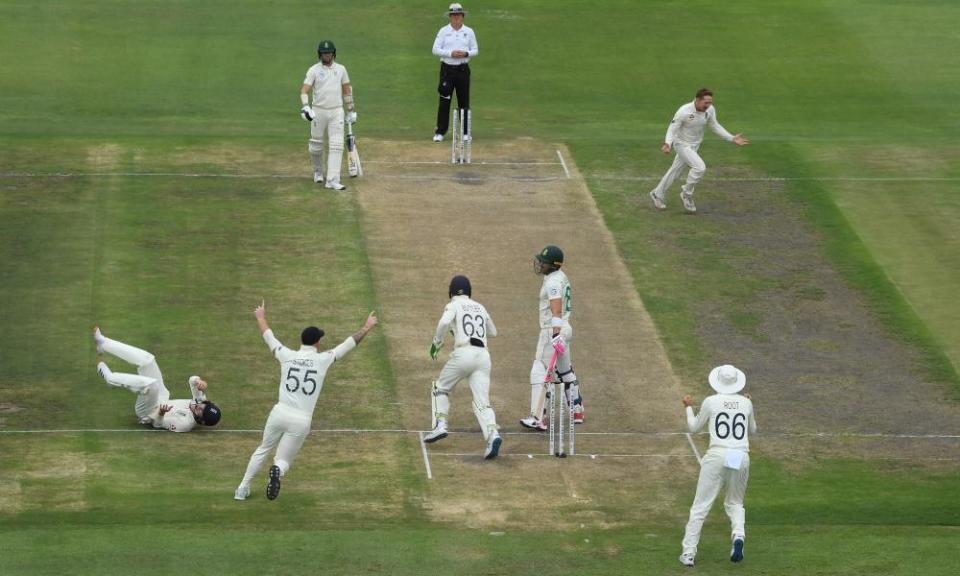England Test nursery under threat from growth of short-form game

While the England Test team were embarking on a deserved celebration of the Port Elizabeth victory on Monday, which was no doubt measured by the proximity of the final Test starting on Friday, the under-19 team were in Kimberley playing their first match in the World Cup against West Indies. On a brown, grassless surface they lost by 71 runs, which did not come as a great surprise.
Related: England thrash South Africa by an innings and 53 runs to take 2-1 lead
The records tell us not to expect too much from our u19 team. They have won the World Cup only once, 22 years ago, when Owais Shah was the captain who had the pleasure of leading the wise-cracking duo of Rob Key and Graeme Swann throughout a long tour of South Africa, which culminated in that victory at the Wanderers. Otherwise England’s U19s have seldom threatened in their World Cups despite all the resources available compared with many other cricketing nations.
The paucity of success at this level makes England’s Test current team, with four men 22 or younger, all the more remarkable. After the win in the third Test Chris Silverwood, who always looks relaxed (though those feelings must now be much more genuine after two consecutive victories) expressed his delight at the contribution of the youngsters in Port Elizabeth.
“It’s always great to see the youngsters come in and achieve as they are doing,” the coach said. “Day after day one of them is always putting his hands up and making a difference in a game for us. It’s fantastic and over a period of time they will become Joe’s team. All of them have a great attitude and a lot of talent, which always helps.
Related: The Spin | England’s first Test tour: death, brawling, betting and cross-dressing
“The innings Ollie Pope played in the Test was very grown up for such a young lad and I mean that in a good way. He was composed, he read the situation well and applied himself unbelievably. He’s got his feet on the ground as well; he works incredibly hard, as all the guys do in that dressing room so that puts him in a great place. They are all good characters, so I’m not surprised they’ve done well.
“If you take Dom Bess, for example. He’s been away on a spin camp, worked hard, has come here, impressed in the nets and when given the opportunity he’s taken it, which is exactly what you want.”
Yet in Kimberley, where another England cricket team were pondering an emphatic defeat, the West Indies side who defeated them looked so much more mature and advanced as cricketers. Two years ago in the U19 World Cup the England side, who had Tom Banton and Will Jacks in the middle order, defeated New Zealand in their last fixture in Queenstown; this meant they came sixth in that competition.
In 2016 a team containing Sam Curran, Saqib Mahmood and Dan Lawrence also came sixth in the tournament held in Bangladesh. The 2014 squad, who were in Dubai, included Dom Sibley; they made the semi-finals, though Sibley did not play in it, and lost against Pakistan. The u19 teams of 2012 and 2010 – when Joe Root, Ben Stokes and Jos Buttler were teammates – failed to reach the semi-finals.

So somehow our young cricketers are callow at u19 level but they seem to mature more quickly than their overseas counterparts after the age of 19. How can that be? The most obvious theory is that their exposure to the English professional game, despite all the knockers, hastens their progress. No one doubts this was the case in the 1970s and 80s when there were so many critics of the advent of overseas players in county cricket (even the great ones) on the basis of “we’re teaching them how to play and then they beat us”. In this era it is not so fanciful to suggest county cricket still has the potential to nurture and enhance young players better than in most countries.
But for how much longer? When the prime cricketing months of June, July and August are overtaken by matches that last for 240 balls or fewer and the longer form of the game is pushed ever further to the extremities of the season, English domestic cricket is unlikely to remain such an effective nursery. Can we assume the England and Wales Cricket Board has taken this into account as it plans ahead?
England’s current U19 team, whose most experienced cricketers in terms of first-class experience are Ben Charlesworth (Gloucestershire), Jack Haynes (Worcestershire) and Hamidullah Qadri (once of Derbyshire, but now of Kent) take on Australia at Kimberley on Thursday. They have to win to have the slightest chance of emulating the boys of ’98.

 Yahoo News
Yahoo News 
